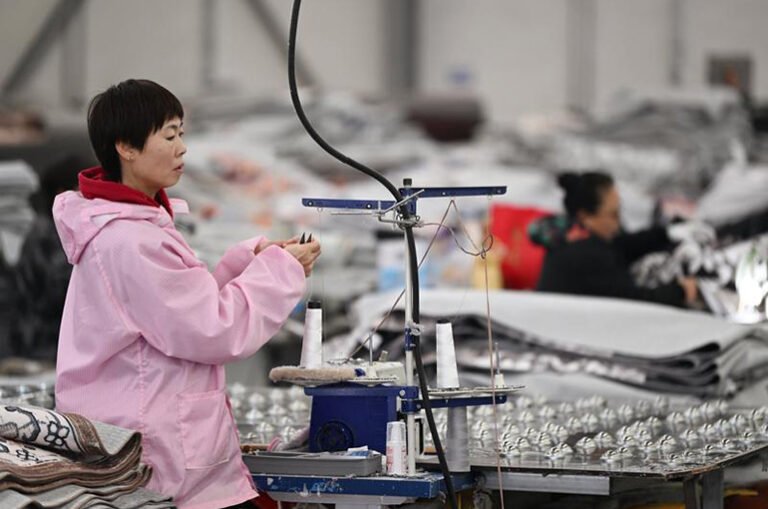China’s sewing machine industry is undergoing a major shift. Faced with weak local demand, many manufacturers are turning to smart technology to grow in overseas markets. This move is already paying off, with export sales on the rise.
Jack Technology, a major name in the sector, celebrated its 30th anniversary on July 18 by launching an AI-powered sewing machine. This marks a major step forward in the company’s push toward innovation. It also shows how Chinese firms are evolving from offering cheap machines to building advanced, high-value products.
Jack Tech’s growth reflects this trend. In the first quarter of this year, its net profit jumped nearly 31% compared to last year. Revenue also rose by 10%, mainly driven by exports. The company has led the global sewing machine market for 14 straight years. Its success comes from offering machines that meet the changing needs of factories worldwide.
Smart sewing machines are now in high demand. With labor costs rising in many parts of the world, machines that can assist or even replace human workers are seen as a valuable investment. Many of these machines can now adjust fabrics on their own, follow movement patterns, and improve sewing accuracy.
These new functions are helping global garment makers work faster and more efficiently. According to Chen Zengnan, a major sewing machine distributor in South China, this level of automation is helping many Chinese manufacturers stay competitive in tough times.
He Ye, a top official at China’s National Light Industry Council, also supports this view. At a recent event, he said smart technology is now a key force helping the industry survive. He urged sewing machine companies to focus on innovation and move up the industrial value chain.
Domestic sales have dropped sharply in recent years. Many garment orders are now shifting overseas, with some factories in China losing as much as 50% of their local orders this year. But exports are making up the difference. Smart, intelligent machines are leading that export boom.
This shift is not only about better machines. It’s also about new ways of doing business. As textile production moves to regions like Southeast Asia and Africa, Chinese companies are changing their approach. Instead of just selling machines, they now offer full-service solutions. These include equipment planning, training, and production consulting.
Jack Tech’s founder, Ruan Jixiang, said earlier that this supply chain migration is creating fresh demand. Chinese firms with a presence overseas are better able to respond quickly. Their work now includes helping clients choose the right equipment, setting up production lines, and managing factory operations.
In countries like Bangladesh and Vietnam, smart sewing machines from China are becoming the top choice. These systems help factories raise output while keeping quality high. According to Li Shiyong, who leads Dongguan Jack Intelligent Total Solution, there is strong demand abroad, and his company is now fully focused on global growth.
The success of these machines also comes from new tech inside them. AI, motor controls, and software now work together to boost speed and precision. This makes garment production more flexible and cost-effective. It also supports sustainability goals by reducing waste and improving energy use.
Professor Li Yongdong of Tsinghua University says this tech trend is a perfect fit for what global markets need. Smart sewing machines help factories meet rising expectations, while also cutting costs. That’s why Chinese brands are gaining a stronger role in the global textile supply chain.
Innovation is helping the industry push through a hard time. As the global market changes, Chinese sewing machine makers are betting on smart technology—and the gamble is already showing strong results.







